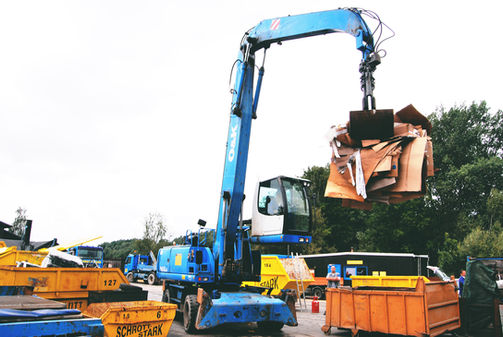
RECYLING
Solutions to Ensure Material Sustainability
Advancing the recycling industry is dependent on (i) emphasizing upcycling, (ii) adoption of next generation recycling technologies, and (iii) identification of new applications for secondary resources. The recycling industry must rapidly innovate and invest in solutions that enable upcycling capability to keep pace with the technical advancement on the side of the consumer.
Adoption of next generation sensor-based recycling systems, system communication protocols and knowledge creation from data that is presently untapped will collectively contribute to optimal processing of materials into new and high value applications. This will further sustainable recycling practice ensuring critical materials are available as a resource for generations to come while limiting negative environmental impact in the process.

Business as usual must be challenged to keep pace with increased material consumption
The recycling industry is well founded on business models that profit most when minimizing how much material of value is transferred to a landfill. However, today as consumer products are being manufactured with increasingly valuable and scarce materials, focus must shift to prevent downcycling and promote closed loop systems and upcycling. Maximizing value creation from materials by means of advanced recycling methods is paramount.
Investing in technological advancement to support the growth of how recycled materials are used in second life applications is critical. The recycling industry is a pivotal player in limiting the climate crisis and innovations in material design, application development and processing techniques are key to ensure the industry’s role remains prevalent in the future.




